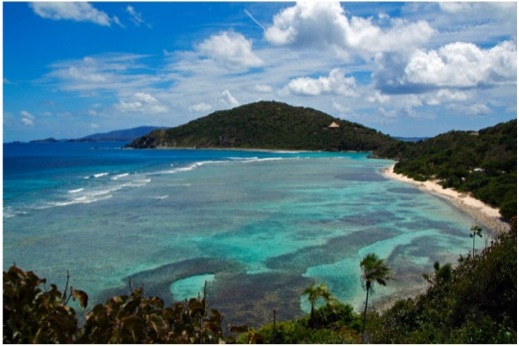By Alexander Britell
From Dominica to Jamaica, the Caribbean’s green energy movement has made significant strides over the last several years. But for those in the British Virgin Islands, going green can be a bit more difficult.
Despite growing support in the country for cleaner forms of power, a longstanding energy law makes it effectively illegal for anyone to use green energy as their primary source of electricity.
Now one group is lobbying to change that.
“Essentially, we have legislation from the 1970s, and it makes the use of renewable energy as your main source of power illegal,” said Charlotte McDevitt, executive director of Green VI, a nonprofit based in Tortola. “If you’re in a country with as much sunshine and wind as we have, it makes sense to use those as your power sources.”
Green VI has retained the Harneys law firm in Road Town to help them lobby the government for a revision, drafting an amended version of the law that would allow for green energy as a primary source of power.
Under the current legislation, the BVIEC (British Virgin Islands Electricity Corporation) has the exclusive right to generate electricity, except in situations like those on some outer islands where no electricity is available.
“For those of us who live in Tortola or Virgin Gorda, or any of the primary islands, because we are in the reach of the power utility, the law states that we must get our power from them,” said Susanna Henighan Potter, a manager at Harneys and member of the firm’s Green Committee.
The law came with a reasonable motivation in the 1970s – as a way to give the electricity company a monopoly as a way of ensuring its viability, she said.
But times have changed, and with rising fuel prices across BVI, the demand for alternative sources of energy is increasing.
“Obviously, the world has moved on somewhat, and the concept of being able to produce our own energy and sell back to the grid is a reality in most parts of the world,” said Tim Peck, chairman of global architecture and planning firm OBM International. “The reality of it is, the existing system [in BVI[ gets fairly stretched, so it would also give [BVIEC] a little bit of leeway, somewhat of a cushion.”
With that said, there is a strong movement towards renewable energy in the British Virgin Islands, especially in residential homes, Peck said.
“I’ve seen a lot of our clients pushing [for green energy],” he said. “The use of solar water heating is kind of a done deal, and we have a number of clients looking to set up photovoltaics as a standby system – which is all you’re allowed to do at the moment.”
Part of the green push could come from external pressure. According to McDevitt, the neighbouring US Virgin Islands are using green technologies “aggressively.”
In fact, last year, USVI Governor John de Jongh signed an MOU with United States federal agencies aimed at developing a clean energy strategy for the territory.
A year before that, the USVI was selected as the site of one of one of three pilot projects by the International Partnership for Energy Development in Island Nations.
Green VI is spearheading some green initiatives on the island of their own, including a project by Riteway Food Markets to outfit the entirety of its roof with solar panels. The organization is also working on several school-based solar programmes.
It’s election season now in the British Virgin Islands, and several new political candidates have begun mentioning green energy in their campaign speeches – but for now, it’s a matter of waiting.
“I think everyone acknowledges that [green energy] is the way forward,” McDevitt said. “So it’s just a matter of when it’s going to happen.”
BVIEC did not respond to a request for comment.
